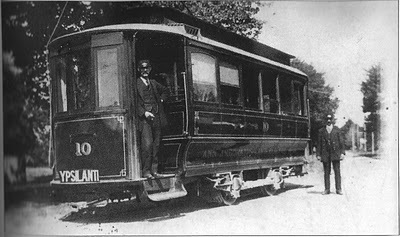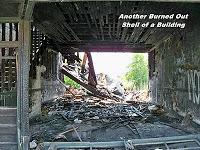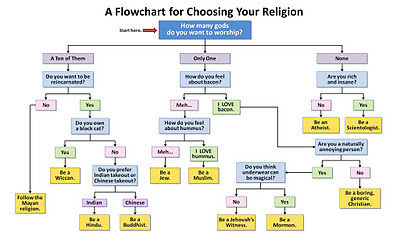Gregory A. Fournier's Blog, page 58
January 22, 2012
Detroit's Big Three Drive Out of the Red and Into the Black
The Motor City has always be a boom or bust town. Ford, General Motors, and Chrysler are in their second year of profits and the future looks promising. When long time sales leader -Toyota - received bad press world-wide over a braking issue a few years ago, it damaged the company's reputation for reliability and customer loyalty as the world's best made car.

Along with Nissan, Kia, and Hyundai, The Big Three took advantage of Toyota's stumble and wrestled away a significant portion of their business. This wouldn't have been possible for GM or Chrysler without the government bailout which positioned them to reclaim some of the auto market from foreign competitors.
Ford was able to avoid a bailout because of an extensive European market which gave them a leg up over their rivals, and GM got on the ground floor in the Republic of China - with the Buick being the most popular car there. This helped GM repay their government loan.
The modern styling, fit and finish, and reliable state-of-the art technology of domestic cars have paved the way for this comeback - and not a second too soon for Detroit - as the domestic automakers continue to turn the corner in the consumer's mind. For more information, click on the following link.
The Big Three's dramatic U-turn - "Sunday Morning" - CBS News www.cbsnews.com

Along with Nissan, Kia, and Hyundai, The Big Three took advantage of Toyota's stumble and wrestled away a significant portion of their business. This wouldn't have been possible for GM or Chrysler without the government bailout which positioned them to reclaim some of the auto market from foreign competitors.
Ford was able to avoid a bailout because of an extensive European market which gave them a leg up over their rivals, and GM got on the ground floor in the Republic of China - with the Buick being the most popular car there. This helped GM repay their government loan.
The modern styling, fit and finish, and reliable state-of-the art technology of domestic cars have paved the way for this comeback - and not a second too soon for Detroit - as the domestic automakers continue to turn the corner in the consumer's mind. For more information, click on the following link.
The Big Three's dramatic U-turn - "Sunday Morning" - CBS News www.cbsnews.com
Published on January 22, 2012 16:36
January 21, 2012
The Ypsi-Ann Trolley - Maybe What's Old Can Be Made New Again!

While doing some research on Washtenaw County, Michigan, for my next book - The Water Tower - I came across an interesting tidbit of history about the Ypsi-Ann trolley which linked the campus of Michigan State Normal College in Ypsilanti with the campus of The University of Michigan in Ann Arbor some ten miles away.
This early mass transit service was popular and served approximately 600 people a day. Despite frequent breakdowns and delays in its schedule, the line got plenty of use from U of M students, who were mostly young men - and from the Normal College students, who were mostly young women. It was said that on the weekends, a rough parity was achieved.
Established in 1890, this extension from Detroit of the longer Interurban line was steam powered and cost only a dime to ride. The engine was designed to look like a street car on wheels, so it wouldn't scare the horses as easily. It could haul as many as four trailers. The service went electric in 1896 and continued to operate until 1928. As the trolley made the horse obsolete, the car made the trolley obsolete.
Today, anyone who drives down Washtenaw Avenue can attest to the terrible traffic between the two cities. Too bad an old idea can't be made new again - or maybe it can. What about a solar powered mono-rail with electromagnets or some hybrid energy backup built over existing right of ways?
America needs new technology. Why shouldn't Washtenaw County be the developmental center for a new age in transportation. Ann Arbor has the technical resources and Ypsi has the manufacturing facilities and the know how. Create the new technology, build it in the old Ford plant, and ship it out to the world.
This could be the hottest commercial venture for the area since the development of the Ypsilanti union suit with the flap in the back - a well-known and much sought after product across America in the nineteenth century. Look to the future.
Published on January 21, 2012 09:14
January 13, 2012
Detroit in Ruins or a City on the Mend?
I just read a book review in The New York Observer by Michael H. Miller of a photo study called Detroit: 138 Square Miles, a depiction of the ruins of Old Detroit, complied by Ms. Taubman - apparently she doesn't have a first name.
 This book is yet another entry in a genre of books about Detroit called "ruin porn," which shows the Motor City at its post-apocalyptic worse. What makes her book different that the rest is that many of her photographs demonstrate "for better or worse, (that) there is life among those ruins."
This book is yet another entry in a genre of books about Detroit called "ruin porn," which shows the Motor City at its post-apocalyptic worse. What makes her book different that the rest is that many of her photographs demonstrate "for better or worse, (that) there is life among those ruins."
Anyone who has traveled to Detroit and driven outside the commercial enclave of business buildings, sport complexes, and gambling casinos downtown, can see that the city and many of its people are hurting. Vast blocks of cleared land look like urban prairies, punctuated by burned out ruins too numerous and expensive to demolish.
Many of these neighborhoods have occasional signs of life in homes that have long since expired their reasonable lifespans - peopled by stubborn residents who anchor themselves in their old neighborhoods because they have no where else to go.
 There is a brief glimmer of hope in the gentrification of the ruins of this city - some young, educated, and optimistic people seem willing to take a chance on Detroit - a city that almost everyone believes has seen its best days.
There is a brief glimmer of hope in the gentrification of the ruins of this city - some young, educated, and optimistic people seem willing to take a chance on Detroit - a city that almost everyone believes has seen its best days.
Detroit is ripe to reinvent itself. But first to must come to grips with its rough and tumble past and restore law, order, and opportunity to its inner city residents.
 This book is yet another entry in a genre of books about Detroit called "ruin porn," which shows the Motor City at its post-apocalyptic worse. What makes her book different that the rest is that many of her photographs demonstrate "for better or worse, (that) there is life among those ruins."
This book is yet another entry in a genre of books about Detroit called "ruin porn," which shows the Motor City at its post-apocalyptic worse. What makes her book different that the rest is that many of her photographs demonstrate "for better or worse, (that) there is life among those ruins."Anyone who has traveled to Detroit and driven outside the commercial enclave of business buildings, sport complexes, and gambling casinos downtown, can see that the city and many of its people are hurting. Vast blocks of cleared land look like urban prairies, punctuated by burned out ruins too numerous and expensive to demolish.
Many of these neighborhoods have occasional signs of life in homes that have long since expired their reasonable lifespans - peopled by stubborn residents who anchor themselves in their old neighborhoods because they have no where else to go.
 There is a brief glimmer of hope in the gentrification of the ruins of this city - some young, educated, and optimistic people seem willing to take a chance on Detroit - a city that almost everyone believes has seen its best days.
There is a brief glimmer of hope in the gentrification of the ruins of this city - some young, educated, and optimistic people seem willing to take a chance on Detroit - a city that almost everyone believes has seen its best days.Detroit is ripe to reinvent itself. But first to must come to grips with its rough and tumble past and restore law, order, and opportunity to its inner city residents.
Published on January 13, 2012 00:00
January 9, 2012
Cafeteria Style Theology
Published on January 09, 2012 14:53
Caferteria Style Theology
Published on January 09, 2012 14:53
January 5, 2012
Confessions of a Yearling Writer
The first year of publishing and promoting my debut novel - Zug Island - has been an interesting learning experience. Lesson number one was that writing the book was only the beginning.
 Preparing it for publication was the second layer of development. This involved an editor's trained eyes for deep editing, continuity, and format development. Decisions about the cut size of the pages, front and back cover designs, font style and size, and the price point needed to be made.
Preparing it for publication was the second layer of development. This involved an editor's trained eyes for deep editing, continuity, and format development. Decisions about the cut size of the pages, front and back cover designs, font style and size, and the price point needed to be made.
Once the copyright had been obtained and my novel was issued an International Standard Book Number (ISBN), my publisher, Wheatmark.com, had it listed in the Ingram trade catalog and on Amazon. I also had a Kindle format produced.
My publicist, Paula Margulies, informed me that now I needed to develop an electronic platform in support of the book. This involved creating and purchasing a domain name, building a website for the novel, choosing a web-host with webmaster services to update the site, setting up facebook and twitter accounts to begin social networking, and creating a blog to establish myself as a brand.
The part of all this that I was the most reluctant about was the blog. I feared the time involved in writing it wouldn't be worth the effort. I was right - it takes time; I was wrong - it is worth the effort! In addition, it helps me establish a writing habit.
In the seven months Fornology has been running, I've written 59 posts that have received over 3,000 hits - many of them global. From a commercial publishing standpoint, that may be modest, but as an independent author starting from ground zero, I'm very pleased.
I've been able to promote my first novel - Zug Island - and solicit information for my next project - The Water Tower. I've been able to "chunk out" ideas in some of my posts which I will adapt for later use, and I've been able to create verbal snap shots of some of my experiences promoting my work.
Maybe the best thing I've discovered about blogging is that it is helping establish me as a credible writer by providing a showcase for my writing that is easily accessible to the public, the media, and booking agents. Blogging is opening doors for me that I didn't know existed.
 Preparing it for publication was the second layer of development. This involved an editor's trained eyes for deep editing, continuity, and format development. Decisions about the cut size of the pages, front and back cover designs, font style and size, and the price point needed to be made.
Preparing it for publication was the second layer of development. This involved an editor's trained eyes for deep editing, continuity, and format development. Decisions about the cut size of the pages, front and back cover designs, font style and size, and the price point needed to be made.Once the copyright had been obtained and my novel was issued an International Standard Book Number (ISBN), my publisher, Wheatmark.com, had it listed in the Ingram trade catalog and on Amazon. I also had a Kindle format produced.
My publicist, Paula Margulies, informed me that now I needed to develop an electronic platform in support of the book. This involved creating and purchasing a domain name, building a website for the novel, choosing a web-host with webmaster services to update the site, setting up facebook and twitter accounts to begin social networking, and creating a blog to establish myself as a brand.
The part of all this that I was the most reluctant about was the blog. I feared the time involved in writing it wouldn't be worth the effort. I was right - it takes time; I was wrong - it is worth the effort! In addition, it helps me establish a writing habit.
In the seven months Fornology has been running, I've written 59 posts that have received over 3,000 hits - many of them global. From a commercial publishing standpoint, that may be modest, but as an independent author starting from ground zero, I'm very pleased.
I've been able to promote my first novel - Zug Island - and solicit information for my next project - The Water Tower. I've been able to "chunk out" ideas in some of my posts which I will adapt for later use, and I've been able to create verbal snap shots of some of my experiences promoting my work.
Maybe the best thing I've discovered about blogging is that it is helping establish me as a credible writer by providing a showcase for my writing that is easily accessible to the public, the media, and booking agents. Blogging is opening doors for me that I didn't know existed.
Published on January 05, 2012 18:36
January 3, 2012
Talk Radio - Why Not?
 Looking through a newsletter from my publisher, Wheatmark.com, I discovered a free radio booking resource called Radio Guest List. Once you sign-in with them, they send out a daily listing of radio outlets requesting guests to interview for a wide range of topics.
Looking through a newsletter from my publisher, Wheatmark.com, I discovered a free radio booking resource called Radio Guest List. Once you sign-in with them, they send out a daily listing of radio outlets requesting guests to interview for a wide range of topics.Depending on the program's target audience, they are looking for authors, musicians, lifestyle commentators, financial planners, and "experts" in many areas. This website simply lists stations that need on-air talent. Once you find an request for a quest spot that is in your area of expertise, you contact their booking agent. That's it!
If they are interested, they will email you back to make arrangements. Within a week, I have been booked for two interviews to discuss my novel - Zug Island - one is for a show called Beef Stew, and the other is for a program named Sayin It Plain.
Other than readers, what new authors desperately need are publicity and exposure. This website provides both for free. Take advantage of it. Good luck!
www.info@radioguestlist.com
Published on January 03, 2012 09:18
December 29, 2011
Contemplating Eternity and Infinity

As our planet ticks off another solar year, the Hubble telescope has provided Earthlings with a view of the far reaches of the universe. Try and wrap your head around this. Happy New Year!
http://www.flixxy.com/hubble-ultra-deep-field-3d.htm?nav=ne
Published on December 29, 2011 16:07
December 26, 2011
Ghost of a Soul (4 of 4)
The integration of mind, body, and soul is the business of growing up human. Our notions of right and wrong become established as our conscience develops in childhood. The Golden Rule of "Do unto others - as you would have done unto you" travels well across many religions and cultures around the globe. This may be the guiding principle that grounds us to society and binds us to other people.
Dr. Martha Stout, Ph D, a clinical psychologist and faculty member in the department of psychiatry at Harvard Medical School, has convincing data to support her belief that ninety-six percent of the population has a conscience and some attachment to other humans. Fully four percent of the population are not inhibited or encumbered by conscience and suffer from attachment disorder - the inability to relate to people in meaningful and lasting ways. These people may go through the motions of life without fully participating in it. It is as if they are absent from their own lives.

Their emptiness gnaws away at them from the inside. Unexposed, it is fed by a need to dominate and control others to meet their egocentric ends. Life becomes a power play where "winning" means everything. Dr. Stout makes the keen observation that "If all you had ever felt toward another person were the cold wish to 'win,' how would you understand the meaning of love, of friendship, of caring?"
Sociopaths are preoccupied with themselves. Their narcissism is compounded by their lack of feeling for other people. Their social detachment can range from callous indifference to protracted dehumanization. They may play on our pity when the occasion calls for it, but their game is not getting our sympathy, it is drawing us into their web of influence to accomplish their own ends. Being master manipulators, when they have their prey in their clutches, the demon in them is aroused and all Hell breaks loose where they play out their God or Satan fantasies of omnipotence.
Dr. Stout's book, the sociopath next door (sic), suggests ways people - young women in particular - should deal with the sociopathic personality. I have adapted them below to reduce her list of thirteen to ten.
Accept that some people literally have no conscience. It's not your fault!Don't let preconceived notions of people's roles (doctors, teachers, clergy, policemen, family, etc) interfere with your instincts. Listen to your inner voice. If something doesn't seem right or feel right about a person, don't ignore it.A series of broken promises, neglected responsibilities, or misunderstandings are warning signs. Strike three and you're out!Question authority! (related to #1) Blind obedience is dangerous. Dr. Stanley Milgram from Yale University conducted the famous "Authority Compliance" study in 1961-1962. He discovered that "at least six out of ten people will blindly obey to the bitter end an official looking authority in their midst. In this case, a "researcher" in a white lab coat clutching a clipboard.Suspect over-exaggerated flattery or concern for others called "counterfeit charm." It often signals an "intent to manipulate."Don't play their game. Avoid contact or communication with them and document everything.Question their appeals for pity, and curtail your need to be polite or to speak with everyone. Don't try to save them. Their behavior is not your fault, unless you enable them.Never be a party to a sociopaths deceptions or help him/her conceal their true nature. If you do, from that moment on, you are ensnared in their web.Defend your personhood and your mental health. People who seek to diminish you have an infinite capacity to inflict harm and damage at your expense. Get some help!
Dr. Martha Stout, Ph D, a clinical psychologist and faculty member in the department of psychiatry at Harvard Medical School, has convincing data to support her belief that ninety-six percent of the population has a conscience and some attachment to other humans. Fully four percent of the population are not inhibited or encumbered by conscience and suffer from attachment disorder - the inability to relate to people in meaningful and lasting ways. These people may go through the motions of life without fully participating in it. It is as if they are absent from their own lives.

Their emptiness gnaws away at them from the inside. Unexposed, it is fed by a need to dominate and control others to meet their egocentric ends. Life becomes a power play where "winning" means everything. Dr. Stout makes the keen observation that "If all you had ever felt toward another person were the cold wish to 'win,' how would you understand the meaning of love, of friendship, of caring?"
Sociopaths are preoccupied with themselves. Their narcissism is compounded by their lack of feeling for other people. Their social detachment can range from callous indifference to protracted dehumanization. They may play on our pity when the occasion calls for it, but their game is not getting our sympathy, it is drawing us into their web of influence to accomplish their own ends. Being master manipulators, when they have their prey in their clutches, the demon in them is aroused and all Hell breaks loose where they play out their God or Satan fantasies of omnipotence.
Dr. Stout's book, the sociopath next door (sic), suggests ways people - young women in particular - should deal with the sociopathic personality. I have adapted them below to reduce her list of thirteen to ten.
Accept that some people literally have no conscience. It's not your fault!Don't let preconceived notions of people's roles (doctors, teachers, clergy, policemen, family, etc) interfere with your instincts. Listen to your inner voice. If something doesn't seem right or feel right about a person, don't ignore it.A series of broken promises, neglected responsibilities, or misunderstandings are warning signs. Strike three and you're out!Question authority! (related to #1) Blind obedience is dangerous. Dr. Stanley Milgram from Yale University conducted the famous "Authority Compliance" study in 1961-1962. He discovered that "at least six out of ten people will blindly obey to the bitter end an official looking authority in their midst. In this case, a "researcher" in a white lab coat clutching a clipboard.Suspect over-exaggerated flattery or concern for others called "counterfeit charm." It often signals an "intent to manipulate."Don't play their game. Avoid contact or communication with them and document everything.Question their appeals for pity, and curtail your need to be polite or to speak with everyone. Don't try to save them. Their behavior is not your fault, unless you enable them.Never be a party to a sociopaths deceptions or help him/her conceal their true nature. If you do, from that moment on, you are ensnared in their web.Defend your personhood and your mental health. People who seek to diminish you have an infinite capacity to inflict harm and damage at your expense. Get some help!
Published on December 26, 2011 00:00
December 22, 2011
Sociopathic Charm (3 of 4)
People labeled as sociopaths are often described as charming. Even after their outrages have been discovered, many people seem dumbstruck, despite the evidence. It is part of the Dr. Jekyll and Mr. Hyde nature of their personality disorder that enables them to deceive other people so easily. They are natural actors because deception and manipulation are second nature to them.
 Sociopaths are people with an uncanny ability to access weakness and vulnerability. They know us better than we know them. They read and study their victims - this is their great advantage. Their propensity to exploit our weaknesses is their hidden skill; once they target their prey, their victims are compromised and defenseless. People who recognize or see through a predator's deceptions are assiduously avoided. Discovery is the last thing a sociopath wants.
Sociopaths are people with an uncanny ability to access weakness and vulnerability. They know us better than we know them. They read and study their victims - this is their great advantage. Their propensity to exploit our weaknesses is their hidden skill; once they target their prey, their victims are compromised and defenseless. People who recognize or see through a predator's deceptions are assiduously avoided. Discovery is the last thing a sociopath wants.
But that speaks to them. What about us? Why do so many of us seem vulnerable? As with many things in life, there is no easy answer. One explanation may be that most people have a mild affinity for danger and a hunger for excitement to punctuate their otherwise mundane lives.
Most people enjoy "controlled" risks. We love cheap thrills we can get an emotional rush from and then return to the safety of our homes. Vicarious experiences from action and thriller fantasies on the silver screen, to riding the latest and greatest amusement park attractions, fill this void for many of us. Still, others prefer creating murder and mayhem in the guise of video games in the privacy of their own homes, or living vicariously through the exploits of their sport heroes.
American pop culture presents a high octane lifestyle of the rich and famous, often fueled by drugs, alcohol, and conspicuous wealth, that creates an unrealistic expectation for success which most Americans can never achieve. We idolize famous actors, successful athletes, and people with money. We long for our own sense of celebrity. Anything to quell the incipient boredom of our conventional lives. We hunger for excitement, so most of us are willing to take the occasional risk.
Part of our American folklore informs us that dangerous people are charismatic. Going for the "bad boy" seems like a coming of age ritual for many young women in our culture - the proverbial moth attracted to the flame. How many intelligent women get into relationships with men who aren't as smart as they are because the man may be perceived as exciting, sexy, or notorious? The answer is "Too many!"
Often, these guys undermine other people's faith in themselves with a technique called "gaslighting," a term derived from the movie Gaslight with Ingrid Bergman and Charles Boyer - a husband tries to make his wife go insane by manipulating her self-doubt. It has since become a term used in clinical psychology. When someone or something doesn't feel right to you - go with your instincts - don't ignore warning signs.
Another thing that makes people vulnerable is that we are irrationally influenced by a person's appearance, especially people in positions of authority and in uniform. Our conventional wisdom insists that "You can't judge a book by its cover," but we do this routinely.
Sociopaths make full use of social and professional roles which provide a "ready made mask." Most people seldom look behind the mask, and they readily accept the superficial trappings of success. Women need to be more discerning in their personal lives and take off their blinders. Don't be an enabler and a party to your own emotional and physical destruction. Passivity is what sociopaths thrive on.
 Sociopaths are people with an uncanny ability to access weakness and vulnerability. They know us better than we know them. They read and study their victims - this is their great advantage. Their propensity to exploit our weaknesses is their hidden skill; once they target their prey, their victims are compromised and defenseless. People who recognize or see through a predator's deceptions are assiduously avoided. Discovery is the last thing a sociopath wants.
Sociopaths are people with an uncanny ability to access weakness and vulnerability. They know us better than we know them. They read and study their victims - this is their great advantage. Their propensity to exploit our weaknesses is their hidden skill; once they target their prey, their victims are compromised and defenseless. People who recognize or see through a predator's deceptions are assiduously avoided. Discovery is the last thing a sociopath wants.But that speaks to them. What about us? Why do so many of us seem vulnerable? As with many things in life, there is no easy answer. One explanation may be that most people have a mild affinity for danger and a hunger for excitement to punctuate their otherwise mundane lives.
Most people enjoy "controlled" risks. We love cheap thrills we can get an emotional rush from and then return to the safety of our homes. Vicarious experiences from action and thriller fantasies on the silver screen, to riding the latest and greatest amusement park attractions, fill this void for many of us. Still, others prefer creating murder and mayhem in the guise of video games in the privacy of their own homes, or living vicariously through the exploits of their sport heroes.
American pop culture presents a high octane lifestyle of the rich and famous, often fueled by drugs, alcohol, and conspicuous wealth, that creates an unrealistic expectation for success which most Americans can never achieve. We idolize famous actors, successful athletes, and people with money. We long for our own sense of celebrity. Anything to quell the incipient boredom of our conventional lives. We hunger for excitement, so most of us are willing to take the occasional risk.
Part of our American folklore informs us that dangerous people are charismatic. Going for the "bad boy" seems like a coming of age ritual for many young women in our culture - the proverbial moth attracted to the flame. How many intelligent women get into relationships with men who aren't as smart as they are because the man may be perceived as exciting, sexy, or notorious? The answer is "Too many!"
Often, these guys undermine other people's faith in themselves with a technique called "gaslighting," a term derived from the movie Gaslight with Ingrid Bergman and Charles Boyer - a husband tries to make his wife go insane by manipulating her self-doubt. It has since become a term used in clinical psychology. When someone or something doesn't feel right to you - go with your instincts - don't ignore warning signs.
Another thing that makes people vulnerable is that we are irrationally influenced by a person's appearance, especially people in positions of authority and in uniform. Our conventional wisdom insists that "You can't judge a book by its cover," but we do this routinely.
Sociopaths make full use of social and professional roles which provide a "ready made mask." Most people seldom look behind the mask, and they readily accept the superficial trappings of success. Women need to be more discerning in their personal lives and take off their blinders. Don't be an enabler and a party to your own emotional and physical destruction. Passivity is what sociopaths thrive on.
Published on December 22, 2011 00:00




